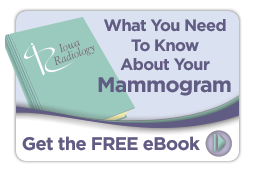
Approximately 1 in 8 women will develop invasive breast cancer in her lifetime. Next to skin cancer, breast cancer is the most commonly diagnosed cancer in women, resulting in approximately 40,000 deaths annually.[1] These numbers leave many women wondering how they can improve their odds. Although some risk factors, such as genetic predisposition, age, and when you began menstruating, are beyond your control, you do have the power to improve your odds.
Breast Cancer Prevention Tips
Keep your weight under control.
Obesity increases a woman’s risk of developing breast cancer, particularly in women who gain weight later in life. A study by the American Cancer Society found that women who'd gained 21 to 30 pounds since age 18 were 40% more likely to develop breast cancer than those who had gained 5 pounds or less.[2]
Exercise regularly.
Exercise is a vital part of any cancer-prevention routine. In addition to being integral to weight control, exercise has been found to have a beneficial impact on the ratio of “good” to “bad” estrogens in a woman’s body, which, in turn, lowers breast cancer risk. In fact, a Women’s Health Initiative study found that women who spent 75-150 minutes per week walking briskly had an 18% lower risk of breast cancer than women who were inactive. The American Cancer Society recommends 150 minutes per week of moderate-intensity exercise for cancer prevention.[3]
Choose nutritious foods.
Foods rich in carotenoids, including red, orange, yellow, and dark green fruits and vegetables, provide some protection against developing many types of cancer, including breast cancer. Researchers at Harvard University found that women with the highest carotenoid levels in their blood had a 19% reduced risk of breast cancer compared to those with the lowest levels of carotenoids. The American Cancer Society recommends at least five daily servings of fruits and vegetables.[4]
If possible, breastfeed.
Studies indicate that breastfeeding has a protective effect against breast cancer, showing a slightly lower incidence among women who breastfeed for less than one year. Women who breastfeed for two years get about double the benefit, and protection is thought to increase with breastfeeding duration.[5]
Limit your alcohol intake.
If you drink alcohol, limit your consumption to one drink per day. Because alcohol can reduce the amount of folic acid in your blood, taking folic acid supplement can help to offset some of the detrimental effects of alcohol consumption.[6] If you find that you’re drinking more than seems healthy, you can start with small changes like pouring yourself smaller glasses of wine or choosing less potent beers or cocktails. Every step you take toward better health is beneficial.
Quit smoking, or don’t start.
Tobacco smoking increases the risk of many types of cancer, including breast cancer. Find tips specifically geared toward women who want to quit smoking at SmokeFreeWomen.
Avoid or limit hormone therapy.
Hormone therapy that combines estrogen and progestin has been shown to increase cancer risk, particularly if it is continued for more than three to five years. Try non-hormonal methods of managing menopausal symptoms before using hormones. If you and your doctor agree that combination hormone therapy is the right choice for you, use the lowest effective dose for the shortest possible period.[7]
Limit radiation exposure.
There are times when the risk associated with radiation exposure is outweighed by the benefit. Annual mammograms, other radiologic imaging necessary to guide medical care, and perhaps even a certain amount of air travel fall into this category. Be aware of your radiation exposures, however, and limit them in ways that make sense. Ask about imaging procedures that do not use ionizing radiation, particularly when chest imaging is necessary; check your home for radon; wear sunscreen or protective clothing; and perhaps take a job that you can do at one location over one that involves a lot of air travel.
Avoid products that include toxins and carcinogens.
Because we are exposed to myriad household chemicals and environmental pollutants every day throughout our lives, it is exceedingly difficult to establish causal connections between specific agents and breast cancer development. We do know, however, that many of the common substances around us contain ingredients that have the potential to alter the way our bodies function through many different mechanisms. For this reason, the healthiest, lowest-cancer-risk lifestyle is one that incorporates as many natural products, including foods, cleansers, and cosmetics, and as few contaminants and chemical products as possible. Find detailed information on specific common contaminants to avoid, including information on air and water pollutants, on The Breast Cancer Fund’s website.
Next to preventing breast cancer from occurring, the best thing you can do to improve your odds of survival is to get annual screening mammograms beginning at age 40 and, if you or at high risk for breast cancer, taking additional steps as recommended by your health care provider. If you're not sure what to expect during a mammogram, download our free ebook to learn more.
The information contained in the Iowa Radiology website is presented as public service information only. It is not intended to be nor is it a substitute for professional medical advice. You should always seek the advice of your physician or other qualified healthcare provider if you think you may have a medical problem before starting any new treatment, or if you have any questions regarding your medical condition. Iowa Radiology occasionally supplies links to other web sites as a service to its readers and is not in any way responsible for information provided by other organizations.
Sources
[1] "U.S. Breast Cancer Statistics." BreastCancer.org. BreastCancer.org, 20 Sept 2014. Web. 9 April 2015.
[2] Port, Dina Roth. "10 Ways to Keep Breast Cancer Out of Your Future." Prevention. n.p., 18 Sept 2013. Web. 9 April 2015.
[3] Ibid.
[4] "How Changing Habits Can Reduce Breast Cancer Risk." Breast Cancer News. BioNews Services, LLC, 14 Oct 2014. Web. 21 Feb 2017.
[5] "Breastfeeding." Susan G. Komen. Susan G. Komen, 5 Sept 2014. Web. 9 April 2015.
[6] "Alcohol." Susan G. Komen. Susan G. Komen, n.d., Web. 9 April 2015.
[7] "Breast Cancer Prevention: How to Reduce Your Risk." Mayo Clinic. Mayo Clinic Foundation for Medical Education and Research, n.d. Web. 9 April 2015.


